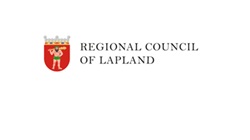Digital Support Solutions for oral health care (DSS-oral)
DSS-Oral
Funders



Project information
Project duration
-
Funded by
European Structural and Investment Funds - INTERREG
Project funder
Funding amount
975 181 EUR
Project coordinator
University of Oulu
Contact information
Project leader
- Professor
Contact person
Researchers
Project description
Public oral healthcare in Scandinavia, particularly in rural and northernmost areas, faces significant challenges due to limited human resources. This scarcity results in delayed treatments of oral diseases and eventually higher treatment costs. Moreover, the lack of resources undermines efforts in preventive care, which in turn increases long-term care needs and expenses. The project is to introduce and produce tools to ease the shortage of dental care resources and to improve the availability of oral health care.
The project will develop digital support tools (DSS) for image analysis, risk assessment and preventive advice. The aim is to identify patients in need of clinical research or treatment in a more cost-effective manner and to assess the risks of oral diseases. The project produces first-hand information on both existing and developing tools for oral health professionals in the region through demonstrations and pilots.
Project actions
- Exploration of user requirements and experiences of the use of various digital solutions (DSS) and artificial intelligence in oral health care to design and evaluate their utility.
- Develop deep learning (DL) algorithms for image analysis to detect findings and risk factors. The work focuses on identifying teeth and detecting caries, gingivitis and plaque.
- Develop artificial intelligence (ML) algorithms to identify the individual risk and main risk factors of oral diseases based on preliminary data collected by survey.
- Demonstrate and pilot tool prototypes with integrated deep and machine learning algorithms developed during the project.
Project results
The expected outcomes of the project encompass the DL algorithms for dental image analysis, the ML algorithms for oral health related behavioural data analysis, the knowledge on use cases, the fit of DSS to work-flows and the desirability of the solutions.